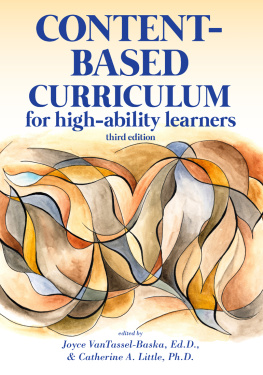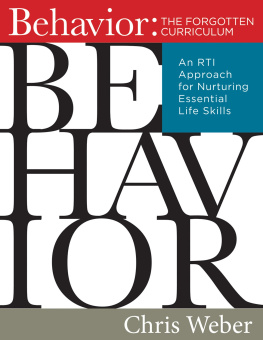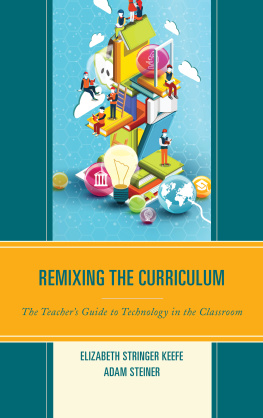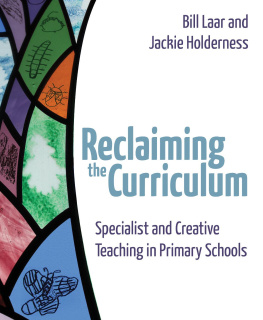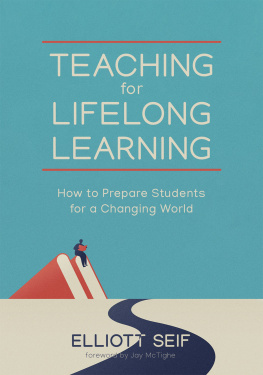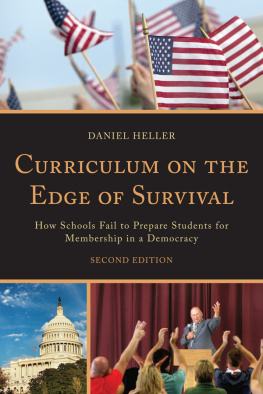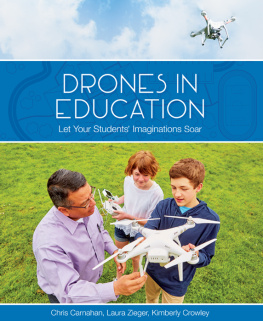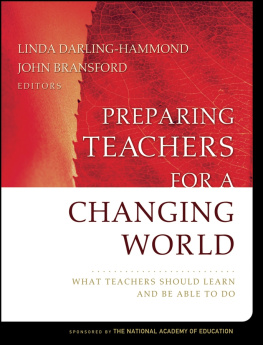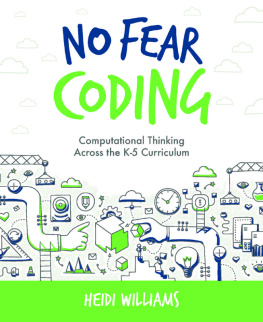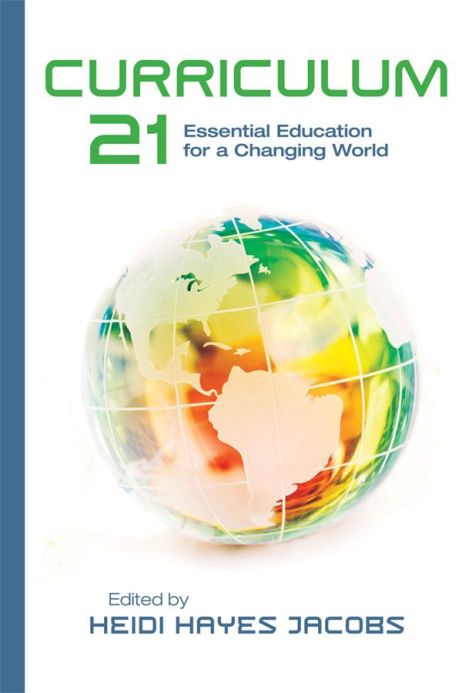
In memory of Richard Strong
Fierce and stunning intelligence
Hearty laughter and warmth
Having read everything, he was a university
Fearless about the future
A commanding public learner
Richard was my teacher
Acknowledgments
To encourage means to give courage. I thank the 10 authors who have contributed to this book by sharing their convictions and bold thinking. They are a virtual team spanning diverse places, but with a singular belief that growth is essential in education. I continue to learn from each of them.
I feel deep appreciation for the personal encouragement (and prodding) from specific colleagues who have been with me relentlessly at every turn: Betsi Shays, Ann Johnson, Valerie Truesdale, Earl Nicholas, Greg Lind, Beth Beckwith, Janet Hale, Jeanne Tribuzzi, and Brandon Wiley. Thanks to Nicki Newton for our collaboration over the years at Columbia University's Teachers College. I value the devotion and steadfastness of Kathy Scoli who has worked with me for almost 20 years. My communication with Kathy feels like a comforting shorthand.
Perspective means to see meaningful relationships from a range of angles. On this one I am sincerely grateful to Vivian Goldstein, Jay McTighe, Giselle Martin-Kniep, and Brian Cory. ASCD has played a pivotal role in my work over many years. Praise to the astute and insightful editorial eye of Scott Willis and Darcie Russell. They have made this book a better one. And, a special thanks to Kathleen Burke for giving me the opportunity to make a special presentation at the ASCD conference held in San Francisco in 2003 on the seed ideas that eventually grew into this book. It was a turning point for me.
For both encouragement and perspective, I thank my husband Jeffrey, and our adult children, Rebecca and Matt. They help me clarify what matters every day. I rely on their honest and aware views of the world.
Over many years, I have had the opportunity to meet many educators in many parts of the world. I have been fortunate to be a learner and I thank you. Ultimately this book is to help all of us prepare our learners for their future.
Introduction
by Heidi Hayes Jacobs
What year are you preparing your students for? 1973? 1995?
Can you honestly say that your school's curriculum and the program you use are preparing your students for 2015 or 2020? Are you even preparing them for today?
Johnny might not even know that his classroom experiences are not providing him the tools to enter a global economy that changes exponentially. Maria's gap in knowledge about the last 50 years of history is not helping her make sense of the contemporary world she lives in. Is your curriculum replacing older methodologies with new tools for communicating and sharing? Or is the use of technology an "event"? Are your students learning world languages that will be dominant and influential when they are adults? Or are you primarily, and painfully, focused on the next state test based on textbooks from the 1950s? It is no wonder that we are behind other nations in international comparisons of academic achievement when our school structures are fundamentally based on an antiquated system established in the late 1800s.
The contention of this book is that we need to overhaul, update, and inject life into our curriculum and dramatically alter the format of what schools look like to match the times in which we live. Our responsibility is to prepare the learners in our care for their world and their future. There is rising concern about 21st century skills and tools for our learners, although it is noteworthy that as of the writing of this book, almost 10 percent of the 21st century has already passed.
Our questions will be straightforward: What do we cut? What do we keep? What do we create? Ironically, we will find many of our answers by looking to the past. For example, in Latin, curriculum means "a path to run in small steps." We negotiate and choose that path, but ultimately it is the students who determine how they will, or if they can, take steps on the path with each class, each teacher, and each day. And if the path is going to 1973 and they know it, then their will and desire to engage are diminished.
To exemplify the imagination, courage, and practicality of 21st century learning, I have invited 10 educators to share their work with you. Certainly there are progressive and practical innovations going on in the United States and other nations that are well worth examining, and obviously the limitation of space afforded by print limits the number that can be included in this book. I have invited these colleagues to elaborate on particularly inventive and timely projects to stimulate like-minded practice.
Stephen Wilmarth has a fine grasp on two critical points that I ask the reader to consider in this book. First, he has articulated how technology is altering the very nature of pedagogy. In short, we cannot expect to "think the same" about teaching when the act of teaching is shifting dramatically as a result of technology tools and access to information. Second, he has created an enormously successful program for bringing together technology innovation, international exchange, and future-oriented work skills. Students in Connecticut work with students in China through his 21st century learning project.
Globalizing the curriculum is the driving force behind the brilliant work of Vivien Stewart, vice president of the Asia Society in charge of education. Not only does she pointedly reveal the necessity for a thorough reconceptualizing of what global education should look like, but also she is acting on her vision with research and creativity. Her perspective and pragmatism make her one of the leading world authorities on this dynamic next chapter in curriculum design.
Tim Tyson is one of my school heroes. His remarkable work as a building principal at Mabry Middle School in Cobb County, Georgia, should inspire any 21st century leader to look at how school improvement efforts need to shift the culture to one that "makes learning irresistible," as Tim did at Mabry. Winning the Intel and Scholastic School of Distinction award, the Mabry faculty and student populationwith Tim's leadershipshow us how to replace the old with the best of the new.
Frank W. Baker is a highly experienced television journalist who has been developing curriculum tools for teaching media literacy for the past 10 years. It is shocking to me that the one medium that is without doubt the most potent in terms of its effects on children and youthtelevisionis not mentioned formally in state standards. How can we help learners become critical consumers of media if we do not work with them on media literacy? This is not just the purview of the family, for we educators certainly do not restrict ourselves to print literacy. Frank's approach is tested and solid.
David Niguidula is the pioneering developer of the digital student portfolio, which is revolutionizing how we access learning and how students view their learning. The state of Rhode Island now requires that each learner develop a digital portfolio showing readiness to graduate. Each learner becomes the navigator of her own work. The ultimate accountability is for learners to take responsibility for their work. The portfolio includes a full array of assessment types. Not only will traditional testing scores and results be linked, but classroom projects, writing collections, and digital film clips of performances are part of the picture compiled by the learner. For me, David represents the best of the diligent scientist-teacher. His work is beginning to revolutionize assessment.
Next page

